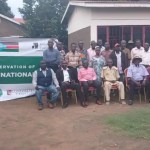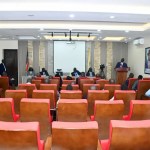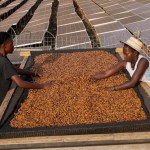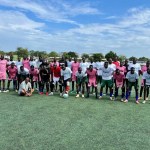(Juba) – South Sudan is facing an alarming rise in poverty, with 92 percent of the population now living on less than $2.15 a day. This marks a steep increase from 51 percent in 2011 when the country gained independence from Sudan, according to a new report released in Juba by the African Development Bank (AfDB).
The AfDB’s “South Sudan Country Focus 2025” warns that poverty in the world’s youngest nation could become nearly universal by the end of 2025 unless urgent reforms are implemented. Drawing on World Bank data, the report details how poverty rose sharply in recent years: from 82 percent in 2022 to 84 percent in 2023, and then to 92 percent in 2024.
Public opinion within South Sudan reflects scepticism and frustration. “It’s more like 99.9 percent,” wrote Facebook user Domina Lilly. Another citizen, Joseph Lobale, suggested the true figure could be 100 percent but is understated to avoid political embarrassment.
South Sudan has an estimated population of 11.48 million. Based on the current poverty rate, over 10.5 million people are believed to live below the international poverty line. At the time of writing, the threshold of $2.15 per day is equivalent to approximately 3,555 South Sudanese Pounds (SSP) per month, or USD 64.50.
While presenting the report, AfDB Senior National Economist Hoth Tot Chany said the poverty situation will worsen unless structural, political, and economic challenges are addressed. He highlighted a lack of investment, poor public resource management, and limited economic diversification as key obstacles.
The AfDB recommends that South Sudan reform its fiscal policy by improving domestic resource mobilisation, widening the tax base, and tackling tax leakages. It also emphasises the importance of improving transparency and public spending accountability, issues that have long raised concerns among the population.
Commentators such as Malong Garang argue that national resources are monopolised by a small elite. He believes public sector reform is essential and that entrenched political figures should step down to allow meaningful change.
According to AfDB and World Bank data, South Sudan is now considered the world’s poorest country by proportion of population living in extreme poverty. It surpasses Madagascar (75 percent), Central African Republic, Malawi and Somalia (all at 70 percent), Democratic Republic of Congo and Burundi (65 percent), Mozambique (60 percent), and Niger (45 percent).
Beyond internal mismanagement, the report points to regional instability—especially the ongoing conflict in Sudan—as a major factor worsening South Sudan’s economic crisis. The war in Sudan has disrupted oil exports, the backbone of South Sudan’s economy, which relies on oil for 90 percent of government revenue.
Oil exports dropped drastically from around 150,000 barrels per day in early 2023 to about 60,000 barrels per day today, following the destruction of key infrastructure including the pipeline to Port Sudan. This has led to sharp declines in government income, accumulation of salary arrears, and deep cuts in health and education services.
Interlinked conflicts—domestic and regional—continue to push the economy further into decline. Armed groups, militias, and intercommunal violence, especially in oil-producing areas, have deterred investors. South African and Russian companies that had shown interest in oil blocks in Jonglei State have since delayed or cancelled plans, citing risk to staff and assets.
The humanitarian situation has also worsened. The conflict in Sudan has driven over one million people into South Sudan since April 2023. Of these, roughly 700,000 are South Sudanese returnees, while the rest include Sudanese nationals and other refugees. Their arrival has increased pressure on already strained services and relief agencies.
Displaced populations face serious shortages of food, shelter, clean water, and healthcare. The report notes that between April and July 2025, around 7.7 million South Sudanese—57 percent of the total population—will experience food insecurity.
Unless urgent measures are taken to reverse economic decline and stabilise the political situation, the World Bank warns that South Sudan could see complete universal poverty by the end of 2025—eliminating even the slim 8 percent currently living above the poverty line.


















































